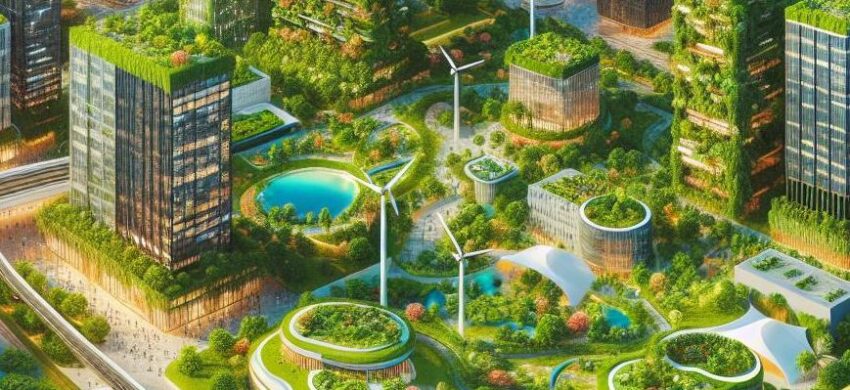Innovation is shaping the future of real estate, prompting developers and real estate businesses to rethink traditional land use strategies. New land-use strategies consciously address the demands for sustainability, livability, political transparency, digitization, and social responsibility that have formed over the past decade. Forward-thinking companies are utilizing technology and data-driven insights to optimize land usage, make better decisions about location and design, and contribute to the overall sustainability of properties. One example is “vertical real estate,” where property developers stack multiple uses — such as residential, commercial, retail, and green spaces — in a single tower.
Another innovative land-use strategy pivots around mixed-use developments, a concept where several property types are combined within a single development, thereby improving space efficiency and creating diverse, vibrant environments that cater to work, live, and play. These developments could potentially minimize commuting needs and reduce traffic congestion, thereby contributing positively to the environment. Furthermore, with the advancement of technology, the concept of PropTech — property technology — is also gaining momentum. Focused on the digital transformation of real estate markets, PropTech has the potential to drive efficiencies in property management, transactions, and user experiences, thus paving the way for more innovation in land use strategies.
 |
 |

